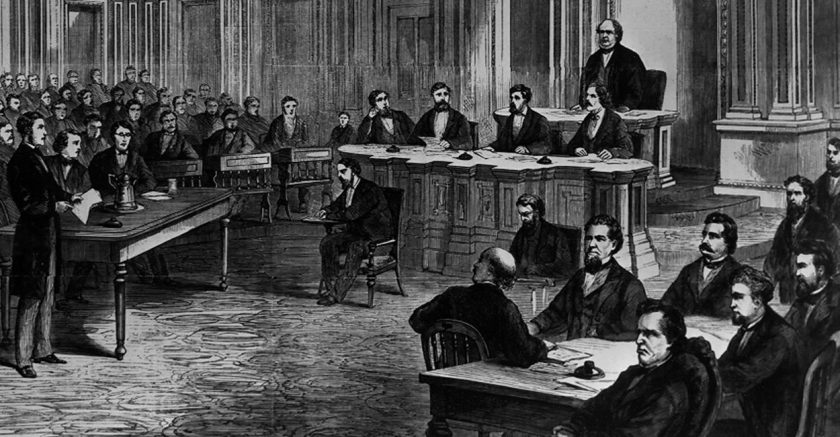Legislation advancing to protect special counsel Robert Mueller from being fired isn’t the first time Congress sought to limit a president’s personnel decisions amid talk of impeachment.
“High crimes and/or misdemeanors is entirely up to Congress. They can decide that spitting on the sidewalk constitutes a high crime,” @LarrySchweikart says.
If the special counsel’s investigation of Russian meddling in the 2016 election and alleged collusion with the Trump campaign comes during a toxic political climate, the situation was far more polarized after the Civil War.
Some of his Democrat opponents accuse President Donald Trump of trying to obstruct Mueller’s investigation, but more than 150 years ago, President Andrew Johnson faced his own fierce enemies.
The bipartisan bill, which cleared the Senate Judiciary Committee on Thursday by a vote of 14-7, states that the Justice Department may fire a special counsel only for “good cause” and allows a removed special counsel to make an “expedited” appeal in court.
The Special Counsel Independence and Integrity Act, however, may never reach a vote on the Senate floor.
In 1867, both major political parties had their own vision of how Reconstruction should take place in the South after the Civil War.
This prompted the Republican-controlled Congress to pass the Tenure of Office Act to require Johnson to seek the Senate’s approval before ousting any appointee confirmed by that chamber.
Republicans used the tenure law as justification for impeaching Johnson and trying to remove him from the presidency. […]
Want more BFT? Leave us a voicemail on our page or follow us on Twitter @BFT_Podcast and Facebook @BluntForceTruthPodcast. We want to hear from you! There’s no better place to get the #BluntForceTruth.







